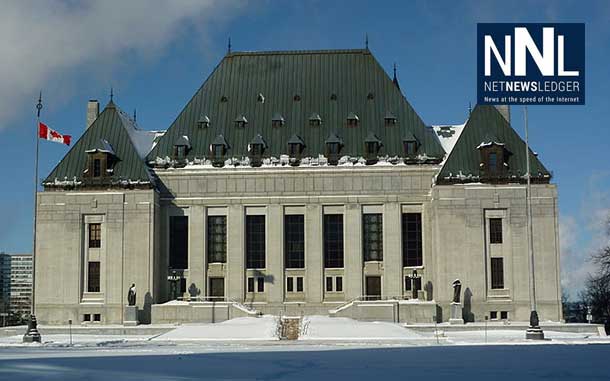By Bruce McIvor and Kate Gunn
Last week the Supreme Court of Canada released its much-awaited decision in Mikisew Cree First Nation v. Canada (Governor General in Council), 2018 SCC 40.
The Court held that the Crown’s duty to consult Indigenous Peoples prior to decisions which could affect their Aboriginal and Treaty rights does not extend to the development of legislation. According, while it may be good policy for the government to consult prior to enacting legislation, there is no constitutional obligation to consult, and possibly accommodate, Indigenous Peoples about laws which could impact their section 35 rights.
Mikisew underscores the limited utility of the duty to consult and accommodate and the necessity for Indigenous Peoples to explore other ways to ensure that their rights and jurisdiction are respected.
What it is about
In 2012 the former federal government introduced two pieces of omnibus legislation into the House of Commons which included significant changes to federal environmental protection legislation. The Crown did not consult Mikisew Cree First Nation about how the amendments could affect their rights under Treaty No. 8 at any stage of the development of the legislation.
Mikisew brought an application for judicial review on the basis that the Crown failed to discharge its constitutional duty to consult prior to enacting legislation which would impact Mikisew’s Treaty rights to hunt, fish and trap.
The Federal Court agreed with Mikisew and granted a declaration that the duty to consult was triggered in respect of the omnibus bill. On appeal, the Federal Court of Appeal found that the lower court erred in conducting a judicial review of the legislative action because in developing policy ministers are acting in a legislative capacity and are therefore immune from judicial review. Mikisew appealed to the Supreme Court.
What the Court said
The Supreme Court unanimously held that the ministerial development of legislation cannot be subject to judicial review by the courts.
On the larger question of the application of the duty to consult, the majority of the Court found that the duty is not triggered by the development of legislation, even where it has the potential to affect Indigenous Peoples’ Aboriginal and Treaty rights. Two members of the Court held that the Crown’s duty extends to all government decisions, including the development of law.
The Majority
The majority held that the duty to consult is not triggered by the development of legislation, including because recognizing a duty to consult in the law-making process would require courts to improperly trespass on the legislative arm of government and lead to inappropriate judicial incursion on the workings of the legislature.
The Court also held that recognizing a constitutionally-mandated duty to consult in the process of legislation would be highly disruptive to the legislative process and could “effectively grind the day-to-day internal operations of government to a halt.” Consequently, the Court concluded that prior to the enactment of legislation there is no constitutional obligation to consult Indigenous Peoples about how that legislation could affect their Aboriginal and Treaty rights.
Importantly, the Court emphasized that the fact that the duty to consult was not triggered in relation to the development of legislation did not absolve the Crown of its obligation to conduct itself honourably. The fact that the legislative process is not subject to judicial review should not “diminish the value and wisdom” of consulting Indigenous Peoples prior to enacting legislation that has the potential to adversely impact their Aboriginal and Treaty rights, even where there is no recognized constitutional obligation to do so.
The Dissent
Justices Abella and Martin dissented on the issue of whether the duty to consult was triggered in the context of the legislative process.
They held that the honour of the Crown gives rise to a duty to consult that applies to all contemplated government conduct with the potential to affect Aboriginal and Treaty rights, including legislative action. To hold otherwise would create a void in the honour of the Crown and leave Indigenous Peoples vulnerable to the government carrying out processes that could affect their section 35 rights through legislative rather than executive action.
They also rejected the majority’s view that extending the duty to consult to legislative action would be unworkable or cause undue interference by the courts in the legislative process. They noted that in many cases, a declaration in the context of the legislative process would be an appropriate remedy, and that recognizing a constitutional obligation to consult would allow the court to shape the legal framework while respecting the constitutional role of the legislative branch of government.
Why it matters
Mikisew represents a missed opportunity. Rather than causing disruption and chaos, a decision that the duty to consult applies to legislative development could have set the stage for respectful engagement with Indigenous Peoples about the development of the law, and in turn, avoid a multitude of potential legal challenges to legislation that affects Aboriginal and Treaty rights.
Unlike other jurisdictions (e.g. New Zealand), Indigenous Peoples in Canada have no direct, separate involvement in the development of legislation in Canada. Mikisew could have addressed this issue, in part, by affirming a positive obligation on government to consider and substantially address the concerns of Indigenous Peoples while legislation is being developed.
Importantly, it would be an error for federal and provincial governments to assume that, based on Mikisew, they can ignore the rights and interests of Indigenous Peoples when drafting legislation. The reasons of both the majority and dissenting judges in Mikisew provide strong, clear affirmation that the Crown should engage directly with Indigenous Peoples, both in order to fulfil its obligation to act honourably and to avoid the prospect of future litigation in respect of legislation which infringes the rights of Indigenous Peoples.
While the entire court in Mikisew identified different opportunities for Indigenous Peoples to challenge federal and provincial legislation that affects their constitutional rights, at the end of the day the decision underscores the need for a new path forward.
Indigenous Peoples should not be forced to fight for a place at the table in the development of the colonizers’ laws. Real reconciliation requires recognition of Indigenous Peoples’ inherent law-making authority and its place within Canada’s constitutional order.
Bruce McIvor, lawyer and historian, is principal of First Peoples Law Corporation.
Kate Gunn is an associate at First Peoples Law Corporation and is completing her Masters of Law at the University of British Columbia.






